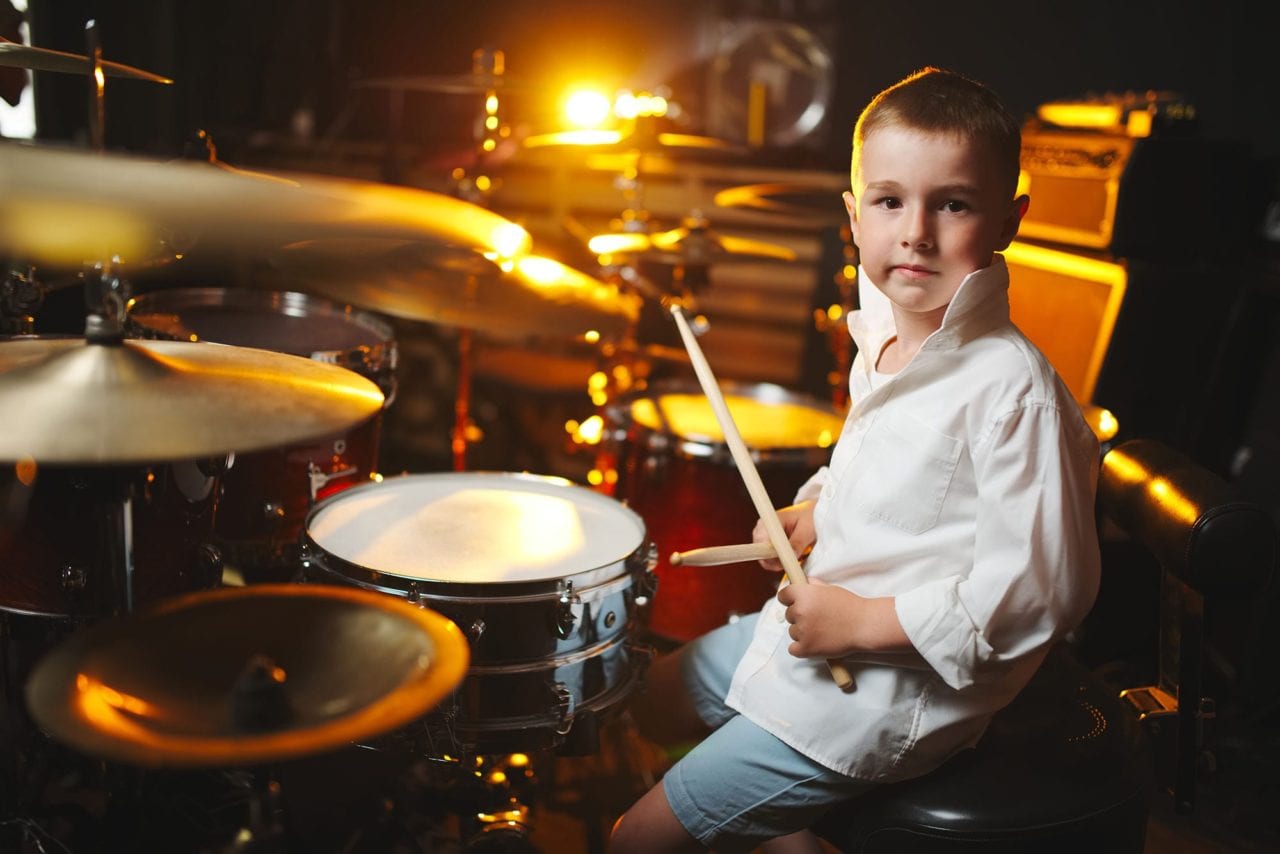Music Lessons For Children Enrolling your child in music lessons is a decision that can have a profound impact on their development and future. Beyond the cultivation of their musical talent lies the imperative task of nurturing skills and qualities that will prove advantageous in various aspects of their lives. Although it may be tempting...
Music Lessons For KidsMusic Lessons For Children – Having Long-Term Vision

Music Lessons For Children
Enrolling your child in music lessons is a decision that can have a profound impact on their development and future. Beyond the cultivation of their musical talent lies the imperative task of nurturing skills and qualities that will prove advantageous in various aspects of their lives.
Although it may be tempting to focus solely on short-term objectives when engaging in music lessons, it is essential to adopt a broader, long-term perspective. In this blog addressing music lessons for children, we will delve into the importance of maintaining a sustained vision when enrolling your child in musical pursuits.
The Power of Music Education
Music education is more than just a hobby; it is a valuable tool for developing various skills and qualities in children. It has been shown to enhance cognitive abilities, promote creativity, and build character. Here are some of the key benefits of music education:
- Cognitive Development
Music lessons stimulates various parts of the brain. Learning to read music, play an instrument, or sing helps improve memory, problem-solving skills, and mathematical abilities. The structured nature of music education teaches children to be disciplined and organized, vital skills that will serve them well in various aspects of life.
Music is a powerful form of emotional expression.
- Emotional Expression
Music allows children to explore their feelings and learn to express themselves in healthy ways. By understanding the emotions conveyed in music, children can become more emotionally intelligent and empathetic.
- Creativity
Music encourages creativity and imagination. Whether composing their own music or interpreting the works of others, children learn to think outside the box and develop a sense of originality. This creativity can extend to other areas of their lives, fostering innovation and problem-solving abilities.
- Confidence and Self-Esteem
Mastering an instrument or improving vocal skills requires dedication and hard work. Achieving musical milestones boosts a child’s confidence and self-esteem. They learn that with effort and perseverance, they can overcome challenges and achieve their goals, a lesson that extends beyond the realm of music.
- Discipline and Patience
Learning music is a gradual process that requires consistent practice and patience. This teaches children discipline and the value of persistence. They learn to set goals, work toward them, and appreciate the satisfaction of gradual improvement. Finding a music school that offers music lessons for children, will be a great way to gain more support and start your journey!
Short-Term vs. Long-Term Vision

When parents consider music lessons for their children, they often have short-term goals in mind. They might want their child to perform in a school recital or master a few songs for a family gathering. While these immediate objectives are valid, it’s essential to look beyond them and consider the long-term impact of music education.
Short-Term Vision
The pressure to achieve immediate results can create stress and anxiety.
- Immediate Results: Parents with a short-term vision may expect quick results from their child’s music lessons. They might become impatient if progress is slower than anticipated, which can lead to frustration for both the child and the parent.
- Performance-Oriented: Short-term thinkers often focus on preparing their child for specific events or performances. While these can be valuable experiences, they shouldn’t be the sole focus of music education.
- Limited Exposure: Children with a short-term perspective may not be exposed to the full scope of musical genres and styles, missing out on a more comprehensive education.
- Stress and Pressure: The pressure to achieve immediate results can create stress and anxiety for both the child and the parent. It may even result in a negative association with music lessons.
Long-Term Vision
- Holistic Development: Parents with a long-term vision understand that music education is about more than just performing. They see it as a tool for holistic development and lifelong learning.
- Patience and Persistence: Long-term thinkers acknowledge that progress in music is a gradual process. They understand the importance of patience and persistence in mastering an instrument or voice.
- Diverse Musical Exposure: A long-term vision encourages a broader exploration of music genres and styles. Children are exposed to a more extensive repertoire, enriching their musical understanding and appreciation.
- Lifelong Skills: Long-term music education imparts skills and qualities that benefit children throughout their lives, not just in the short term. These skills include discipline, creativity, and emotional intelligence.
The Role of Parents in Cultivating Long-Term Vision

When signing up for a Music Lessons for Children program…As a parent, you play a crucial role in shaping your child’s music education journey. To cultivate a long-term vision, consider the following strategies:
- Setting Realistic Expectations
Understand that mastery of an instrument or vocal skills takes time. Setting realistic expectations for your child’s progress will reduce stress and frustration. Celebrate small milestones, and remind your child that the journey is just as important as the destination.
- Encourage Exploration
Expose your child to a variety of musical genres. Encourage them to explore different instruments or styles. This broadens their musical horizons and helps them discover what truly resonates with them.
- Emphasize the Joy of Learning
Shift the focus from achieving specific performance goals to the joy of learning and self-expression through music. As children receive joy from the process, they become more prone to more engagement. Moreover, their sustained interest is likely to translate into a long-term commitment.
- Be Supportive
Provide unwavering support for your child’s music education. Attend their lessons, listen to their practice sessions, and show a genuine interest in their progress. Your involvement will reinforce their commitment to music.
- Set Long-Term Goals
Work with your child’s music teacher to set long-term goals for their musical development. This could include mastering a specific piece, achieving a certain level of proficiency, or even composing their own music. Long-term goals give purpose to their practice and inspire dedication.
- Create a Musical Environment
Surround your child with a musical environment at home. Play various genres of music, attend live performances, and provide opportunities for them to engage with other young musicians. This immersion enhances their love for music and reinforces the importance of a long-term perspective.
The Rewards of a Long-Term Vision

Embracing a long-term vision for your child’s music education comes with numerous rewards that extend far beyond the realm of music itself. Here are some of the advantages of this approach:
- Lifelong Passion
By encouraging children to explore and appreciate music in a holistic manner, they are not only immersed in its beauty but also more likely to cultivate a lifelong passion. Through this comprehensive approach, they can forge a deeper connection with music, fostering an enduring love that transcends mere interest. Music becomes an integral part of their identity, providing joy and fulfillment throughout their lives.
- Transferable Skills
The skills acquired through long-term music education are highly transferable. The discipline, creativity, and emotional intelligence learned in music lessons can be applied to academic pursuits, professional endeavors, and personal relationships.
- Confidence and Resilience
Long-term thinkers raise confident and resilient children. The process of mastering an instrument or improving vocal skills teaches them that hard work and persistence lead to success. This confidence and resilience will serve them well in facing life’s challenges.
- Enhanced Academic Performance
Research has shown a strong correlation between music education and improved academic performance. Children with a long-term commitment to music often excel in subjects like mathematics, language, and science.
- Emotional Well-Being
Music is a powerful tool for dealing with emotions. Children with a long-term connection to music have a healthy outlet for their feelings and a means of self-expression, which contributes to their emotional well-being.
Provide unwavering support for your child’s music education.
Conclusion
Enrolling your child in a “Music Lessons For Children” program, is a decision that can have a big impact on their development and future. It’s not just about nurturing your child’s musical talent; it’s also about fostering skills and qualities that will benefit them throughout their lives. While it’s easy to approach music lessons with short-term goals in mind, having a long-term vision for their musical journey is crucial.

